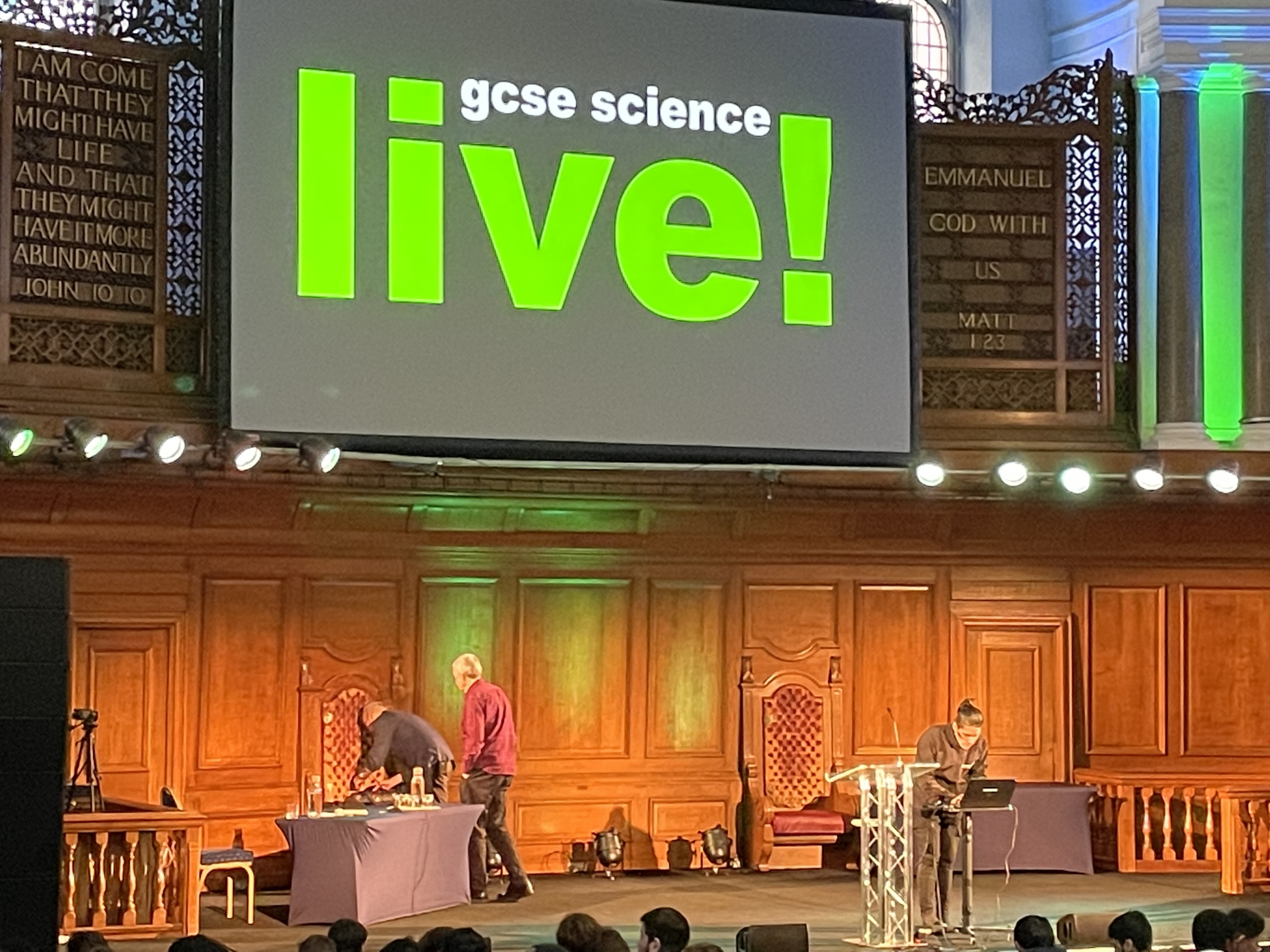Year 10 Scientists enjoy hearing from top scientists at GCSE Science Live
After a 2 year Covid break, year 10 scientists were able to attend GCSE Science Live and hear from the world’s top scientists.
On Friday 4th March we went to the Emmanuel Centre in London to GCSE Science Live. In total, we saw 5 scientists who work in several different aspects of science. For example, Doctor Helen Czerski, an oceanographer and broadcaster, discussed her job and explained how physics and biology cooperate in many different ways. She talked about an Arctic expedition and how important it is to record information on every part of these experiments. It was helpful for us because it showed us how, outside of school experiments, there’s still practical/experimental work which depends on specific variables and factors that are used in many jobs related to science.
Then we also listened to Professor Lord Robert Winston who is a pioneer of IVF. He talked to us in depth about the reproductive system and showed us what the inside of a fallopian tube and uterus looked like. He then went on to talk to us about how scientists have found a way to make “super rats” and showed us a clip of they compare to an average rat. From this video we saw that what they have created had enhanced the rats abilities massively and allowed it to endure 5 hours of running on a treadmill! Professor Winston also explained that it is considered not a good idea to create or modify humans with this new invention as it takes away the natural part of being a human.
An Italian-American Professor of Chemistry, Andrea Sella, also explained how amazing and shocking it is that water is the only known element that allows its solid form to float in its liquid form. He then went on to experiment with dry ice and explained how the changes of states between gases, liquids and solids can change in a matter of seconds with one of his experiments. He also told us to read a book called ‘The Periodic Table’ by Primo Levi, which talks about Levi’s experiences during the second world war with the elements of the periodic table being a metaphor for each of his experiences. This was a nice touch as it shows how science, history and literature are all integrated.
Dr Maggie Aderin-Pocock, famous for her work as an astronomer and presenter of ‘The Sky at Night’, spoke about the reasons behind launching the space telescopes, their capabilities and their cost. Finally we heard from Dr Giles Yeo about obesity and its link with our genes.
It was a great day, with tips from a chief examiner as well, to help with our GCSEs.







